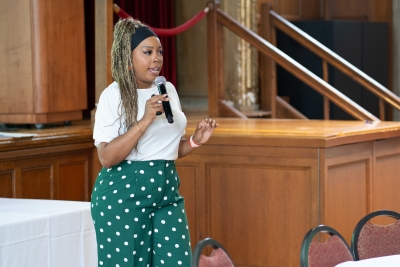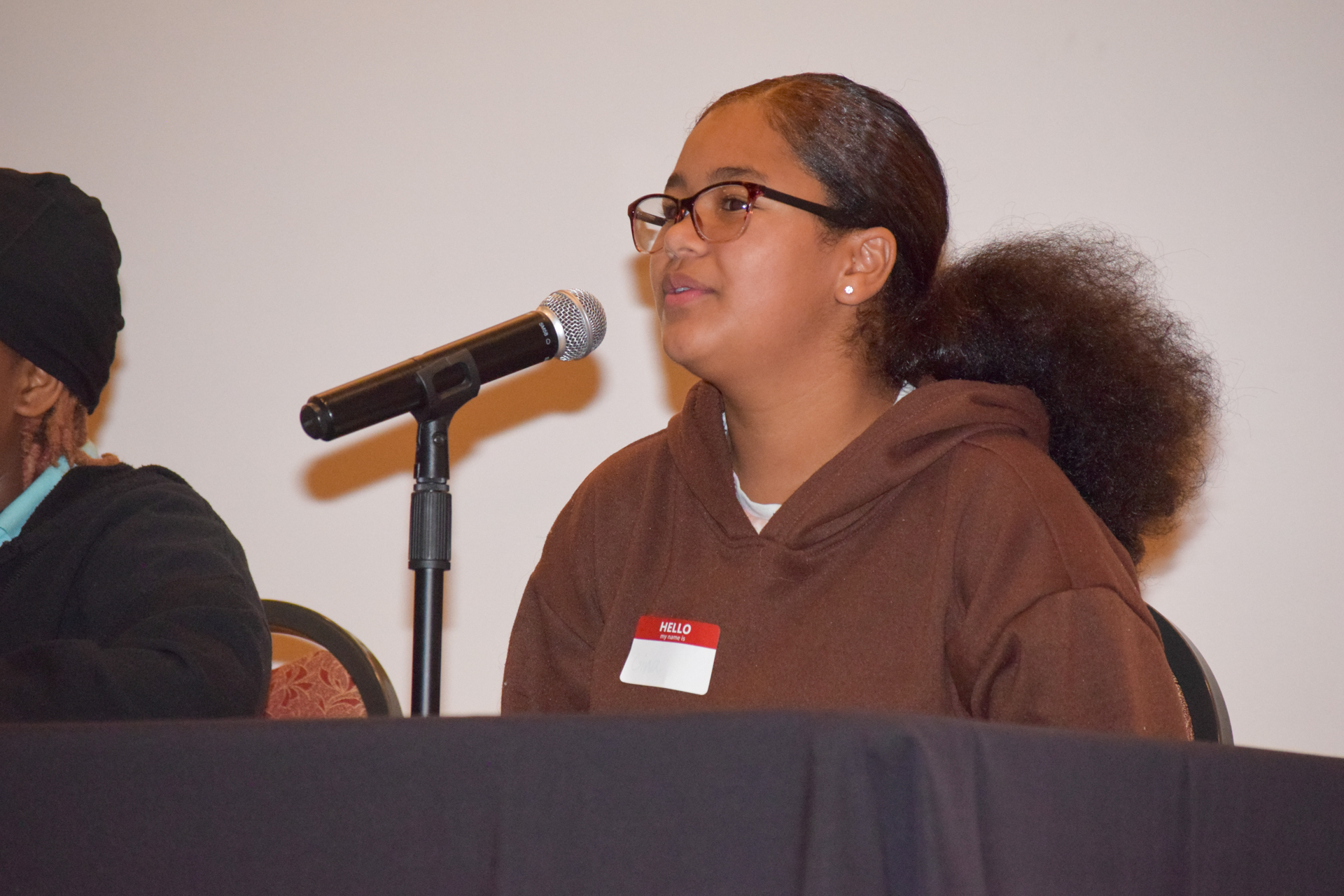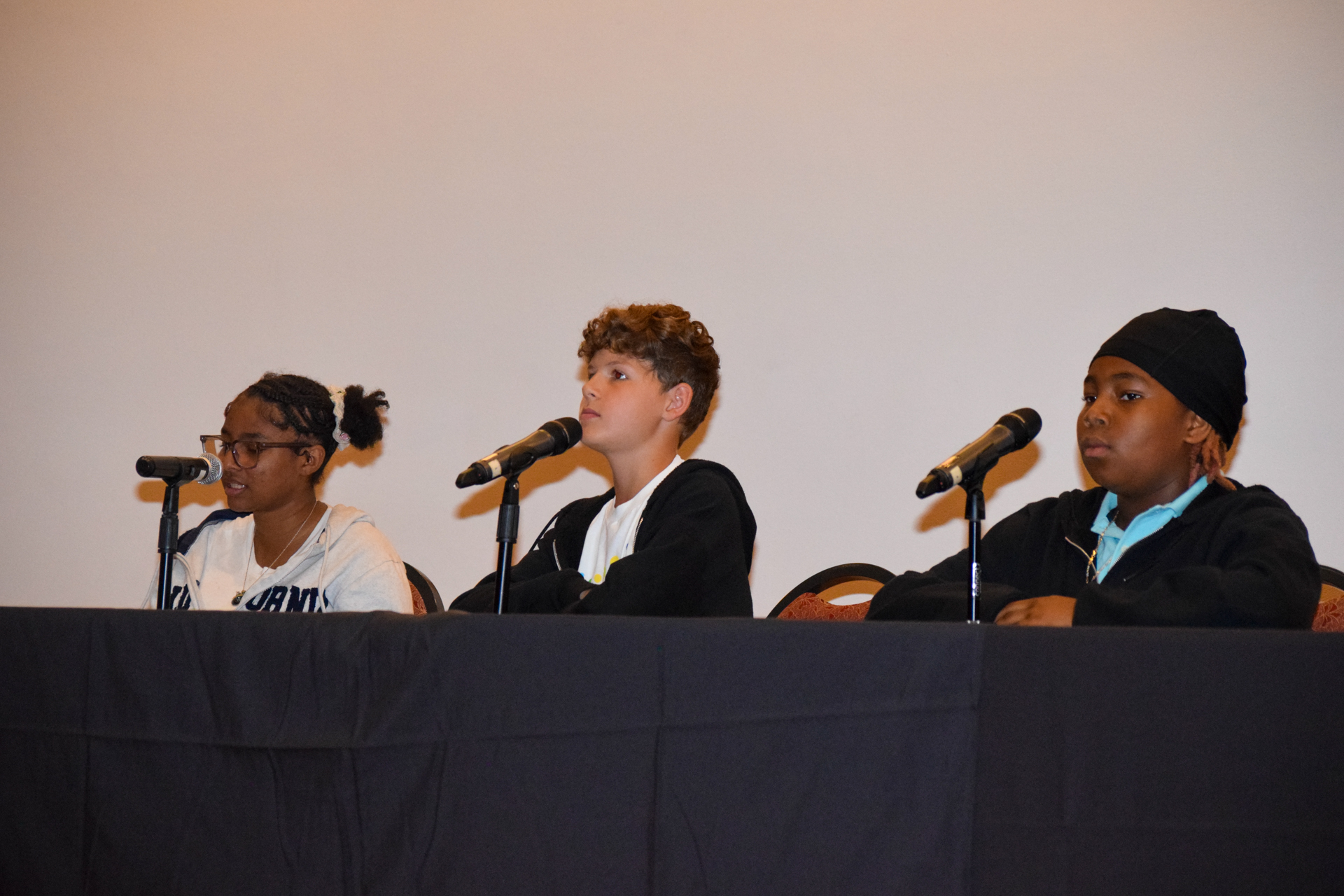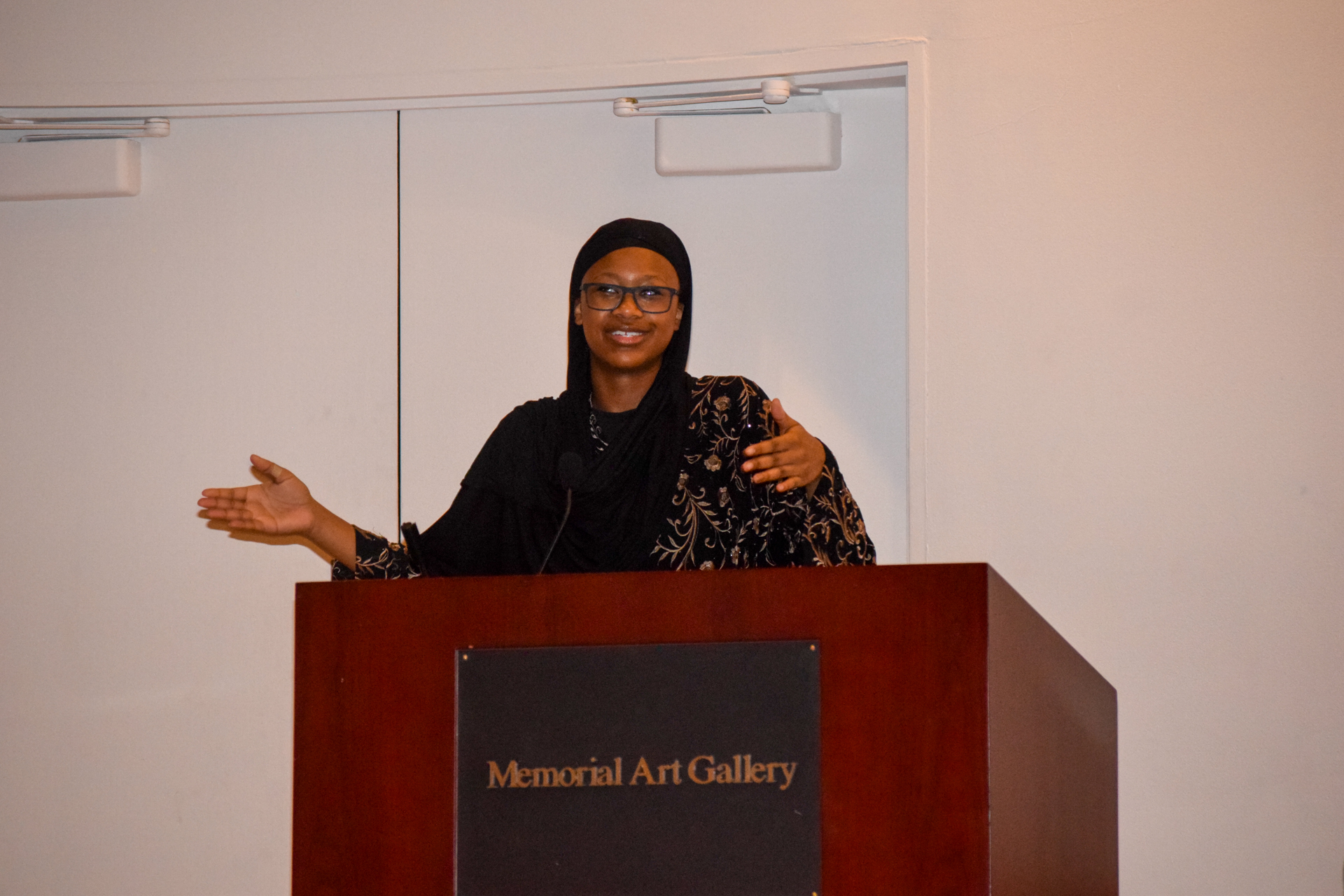August 22, 2025
“Joy in Motion” theme focused on play, creativity and recess as learning tools
 Dr. Deonna Smith used a tale of two schools to share how learning environments could be filled with – or empty of – joy.
Dr. Deonna Smith used a tale of two schools to share how learning environments could be filled with – or empty of – joy.Both of the two schools had made impressive academic strides, Dr. Smith said, speaking during her keynote at the Aug. 20 Playful Learning Summit at the Memorial Art Gallery. The Healthi Kids event focused on the joy of play as a tool for learning and was titled “Joy in Motion: Reimagining Learning through Play, Creativity, and Recess.”
One school had students who walked silently in between classrooms. If those students spoke to classmates during lunch, recess was canceled; the aim was to get kids back to classrooms for learning.
The other school lacked funding – as evidenced by delayed school maintenance. Yet inside the run-down building, students’ excited chatter filled classrooms, halls and the cafeteria.
Guess which school was packed with students who loved to learn?
 Of course. The run-down but joy-filled one. Dr. Smith, author of “Rooted in Joy: Creating a Classroom Culture of Equity, Belonging and Care” advocated during her keynote for the creation of learning environments where joy was encouraged at all levels.
Of course. The run-down but joy-filled one. Dr. Smith, author of “Rooted in Joy: Creating a Classroom Culture of Equity, Belonging and Care” advocated during her keynote for the creation of learning environments where joy was encouraged at all levels.Her message was backed up by a panel of youth earlier in the day who shared why play is important to them. One student said it’s hard to sit still during classes. Several said their classes frequently got recess taken away due to behavior issues of students.
“School doesn’t bring me joy at all,” one of the youth panelists said to the gasps of the assembled educators.
“When you play, it helps you make more friends,” another student said. “You get experience being around people.”
Sessions throughout the event focused on topics ranging from improvisational play to play as a tool for social justice.
 Dr. Timothy Davis, an associate professor at SUNY Cortland and a physical education teacher, shared how playful movement can enhance inclusion and prime kids to learn. He offered various ways to adapt movement to students’ abilities and offer sensory input that many students seek.
Dr. Timothy Davis, an associate professor at SUNY Cortland and a physical education teacher, shared how playful movement can enhance inclusion and prime kids to learn. He offered various ways to adapt movement to students’ abilities and offer sensory input that many students seek.“You have to have administrative support that movement is part of learning,” he said.
Even though it was raining during the event, the educators’ enthusiasm wasn’t dampened for recess. Instead, they took part in a 20-minute indoor recess planned by youth organizers featuring board games, a scavenger hunt around the art gallery, origami and coloring and time to socialize with friends.

“Recess is a time for kids to refresh their brains, get active, and develop important social skills,” said Mike Bulger, director of whole child health advocacy for Common Ground Health. “During recess, kids learn to share, play fair and work out problems. Sadly, recess has been shortened or even left out of school schedules. The Playful Learning Summit included an opportunity for adults to experience recess from a student’s perspective and demonstrated why kids need more than 20 minutes of free play in a school day.”
Summit speakers focused on the power of play and creativity inside and outside the classroom to spur physical activity, social-emotional growth, mental wellness, academic achievement and more.
The summit brought together youth and families, educators and community partners to explore ways to build joyful learning environments. Participants considered the many benefits of playful learning, with a special focus on how it positively affects the holistic development of children from a variety of backgrounds.
“Play supports social-emotional development,” said Stephanie David, early childhood policy director of Common Ground Health. “It forms the building blocks of relationships with peers and adults.”
Sponsors of the event include New York State Department of Health’s Creating Healthy Schools and Communities,* the Greater Rochester Health Foundation and NYS United Teachers.
View a photo gallery from the event.
Read news coverage of the event.
*Funding for the event was made possible in part by the State of New York. The views expressed in written event materials or publications and by speakers and moderators do not necessarily reflect the official policies of the State.

